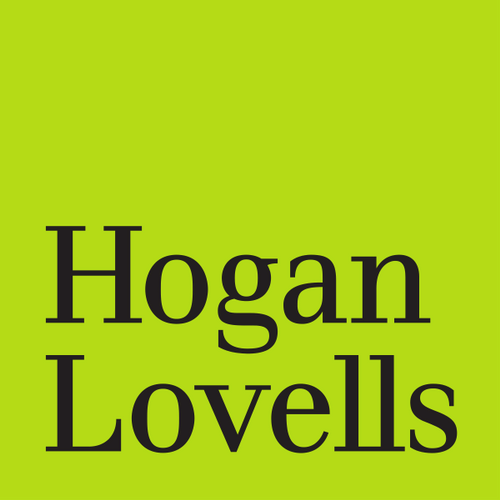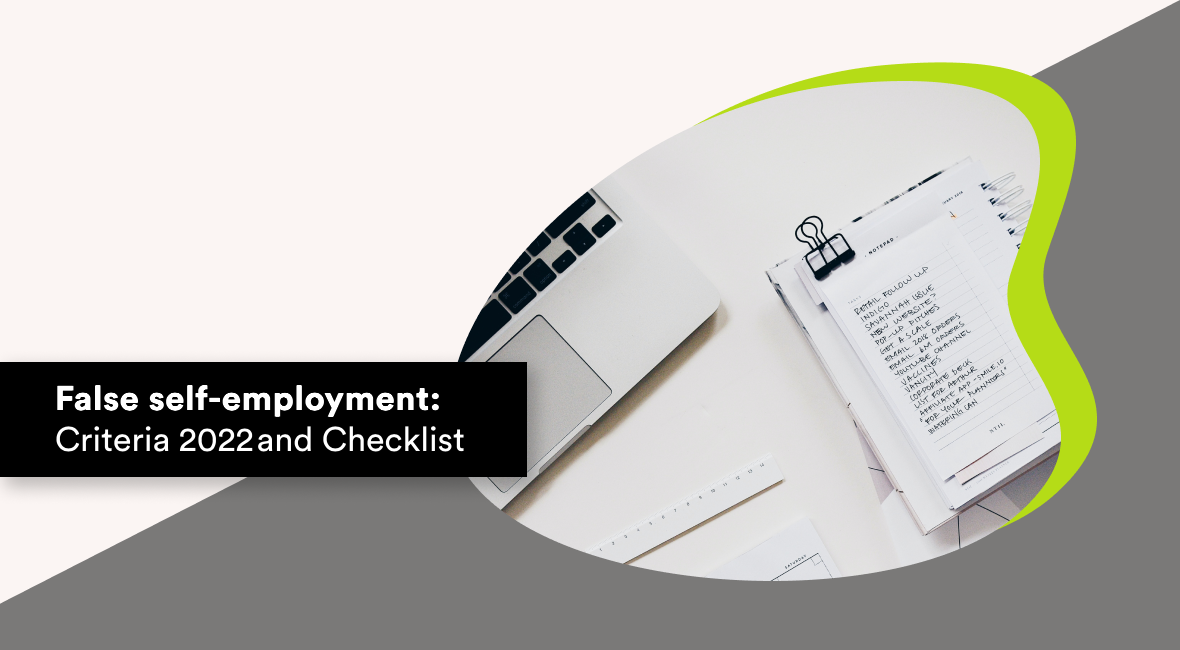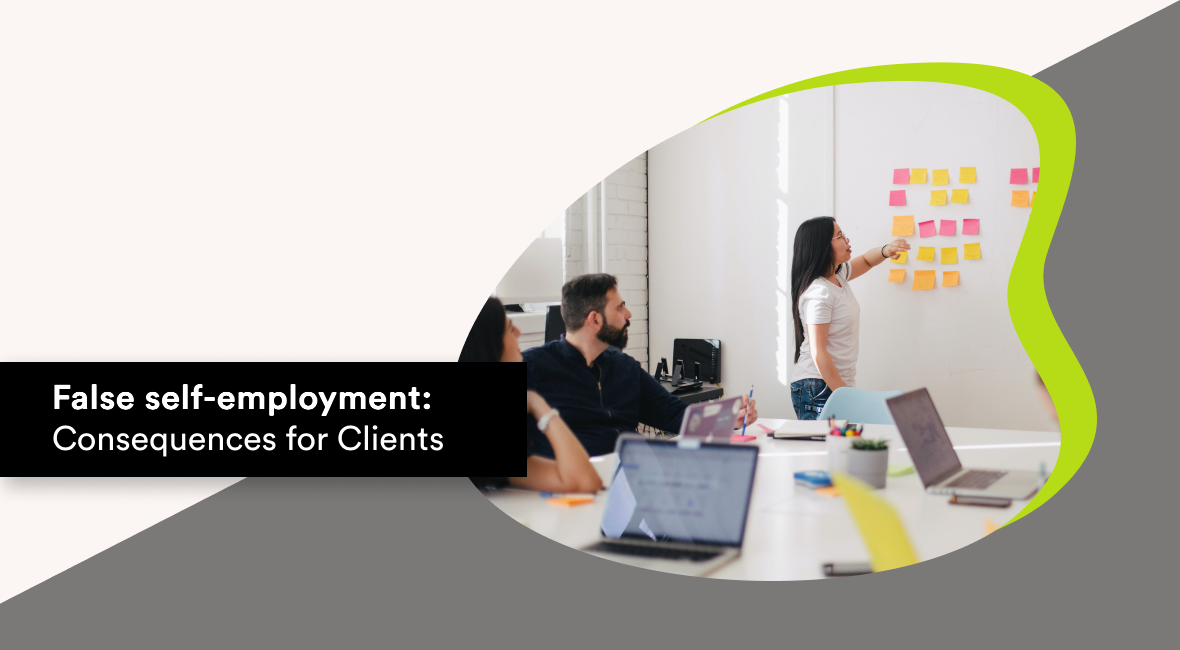With this test, you can assess the risk of possible false self-employment of a "freelancer" commissioned by you for your project. Our tool can only provide a general initial check, but it does not provide a final assessment and does not replace legal advice in a specific case.
Quickly to more security!
In just 7 minutes, you'll get an informed assessment of your false self-employment risk.

1. Answer questions
Answer typical questions from practice that are fundamental in assessing potential false self-employment. In only 7 minutes, all questions are answered.

2. Receive results by email
Then you will receive an evaluation of your case as a PDF in your inbox. This PDF also recaps all your answers so that they are ready for an examination.

3. Save and store
Our questions are based on practical cases from the false self-employment test. The results are suitable for filing with the freelancer contract for a pension fund examination
Freelancer experts with years of experience.
Do you need further assistance? Contact us!
Legal Support?

Tim Joppich
Partner at Hogan Lovells

Stefan Richter
Counsel at Hogan Lovells

Jessika Heinsch LL.M.
Knowledge Lawyer at Hogan Lovells
 Hogan Lovells
Hogan Lovells
Hogan Lovells is a leading international law firm with more than 2,500 legal employees and over 45 offices worldwide. As a true full-service firm, Hogan Lovells advises companies in all areas of national and international commercial law.
The German employment law team of Hogan Lovells advises companies in particular on change processes. Whether founding, merging, acquiring, restructuring, reorganizing, divesting, relocating, data protection, or outsourcing - the team supports clients in groundbreaking projects in Germany and worldwide and assists them in negotiations with labor councils, trade unions, and in employment law disputes before courts and conciliation boards.
Are you looking for freelancers?
9am is a freelancer platform making lives easier for both sides - freelance talent and companies. 9am was created by CodeControl, a remote-first company who built a community of the best freelance tech talents in Europe. Founded in 2016, they have helped clients like Lufthansa, Siemens and Payworks succeed.
For companies, 9am makes it easy to manage, find, and freelance talent. They can import and manage their own freelancer network. In cooperation with Hogan Lovells, 9am offers compliant contracting and false self-employment checks - for free.
In addition, companies can post their jobs to 9am and other platforms with one click, search for talent commission-free on 9am, and use the 9am Plus service to get selected talent within 24 hours. They can simplify their cost structure by paying all their freelancers centrally in one invoice.

Emile Baccaini
Sales Lead
at CodeControl & 9am

Antonia Patzelt
Account Manager
at CodeControl & 9am

Marc Clemens
CEO at CodeControl & 9am
Read more about false self-employment.
Learn more about the criteria and consequences of false self-employment and how to avoid it.
Frequently Asked Questions
The issue of false self-employment raises many questions. Find answers to the most common topics here.
What is the criteria for false self-employment in 2023?
When distinguishing self-employment from dependent employment, the entire contract must always be assessed in terms of the agreements made, but also of the actual handling. In other words, it is always a comprehensive assessment of the facts. The classification of a person as a self-employed person or an employee is primarily based on whether the person in question is essentially free to organize his/her activity and determine how the service is provided, or whether he or she is obligated to provide the contractually agreed service in personal dependence concerning type, place and time.
Important criteria are:
· Content-related instructions
· Specifications regarding the type, place, and time of the service
· Integration into the company organization
· Type and manner of remuneration.
However, these criteria are by no means an exhaustive list, but merely an exemplary one.
The classification of the contractual relationship as self-employment or dependent employment can be thought of as a scale. Evidence in favor of self-employment is placed on one side of the scale, and evidence against self-employment is placed on the other side. Depending on which side the scale leans on, the corresponding legal qualification will be obvious. However, you should note that it is not just based on the number of circumstantial evidence. The various criteria have different weights. Thus, in an individual case, there may be many criteria that speak in favor of a certain classification, but their "weight" cannot outweigh one or two criteria on the other side of the scale.
How do I avoid false self-employment?
Client should know the demarcation criteria and keep an eye on them. Before each commissioning, it should be checked whether a planned freelance activity meets the necessary requirements. Anyone who frequently needs self-employed work should set up and maintain an appropriate compliance system; checklists and the bogus self-employment test available here can help. In case of doubt, legal advice is available.
If you still have doubts about your specific case, you can obtain legal certainty vis-à-vis all social insurance agencies within the framework of a status determination procedure at the German Pension Insurance Association (DRV). This way, the risk of false self-employment can be verified in a binding manner. In the case of ongoing employment relationships, it is not advisable to apply to the authorities for a status determination without prior expert advice, as this can lead to high additional payments.
Is it possible to avoid false self-employment?
As a matter of principle, clients should subject employment relationships with freelancers to regular self-monitoring and keep an eye on the demarcation criteria. If there is any suspicion of false self-employment, you should seek legal advice on how to structure the cooperation safely. Particular caution is required if you are the only or the main client of the freelancer.
If there is a doubtful case and the risks cannot be eliminated, even by adjusting the contract or the implementation of the contract, the risk of possible false self-employment can be bindingly examined by a status determination procedure at the German Pension Insurance Association (DRV).
What are the penalties for false self-employment?
The incorrect qualification of a self-employed person particularly leads to social security contributions and wage tax not being paid properly.
Anyone who fails to declare and pay the employee's wage tax to the tax office with at least conditional intent is liable to prosecution. This can result in a prison sentence of up to five years or a fine. A reckless violation can be punished with a fine of up to EUR 50,000 per violation.
In addition, one is also liable to prosecution if social security contributions are withheld from the collecting agency with at least conditional intent. Here, too, there is a risk of imprisonment of up to five years or a fine.
In addition to this, in case of doubt, the client would also have to pay the outstanding taxes and social security contributions, and if applicable with a surcharge for late payment.
Does false self-employment also exist for foreign freelancers?
Whether the freelancer is a foreign or a domestic employee is irrelevant for the legal classification. The problem of false self-employment arises in any case if a freelancer provides his services in Germany.
Is there a false self-employment checklist?
Checklists such as the false self-employment check can provide a solid initial risk assessment. However, there is no generic checklist that can be used for a conclusive and legally secure classification of the status. The decisive factor is always the overall view of the underlying facts.
Our false self-employment test can provide good assistance in familiarizing oneself with the risk of false self-employment.
What are the consequences of false self-employment for employers?
False self-employment can have social security, labor, tax, and criminal law consequences for the client. It may result in an additional payment of social security contributions and wage tax to the social security institutions and the tax office with additional late payment penalties. Under criminal law, the client may also be prosecuted under certain circumstances.
From an employment law perspective, there is a risk that the freelancer will assert all employee protection rights (e.g. continued payment of wages in the event of illness, vacation entitlements, remuneration for overtime, etc.).
Finally, in addition to the legal risks of false self-employment, you should not overlook that contracting false-self-employed workers can also cause considerable damage to your company's reputation.
How is false self-employment checked?
The question of false self-employment is usually only raised in the event of a conflict. For example, in the event of termination or if indications of an employment relationship are discovered during a company audit.
The existence of false self-employment is examined based on certain criteria within the framework of an overall consideration of all circumstances. In doing so, authorities and courts pay particular attention to criteria that raise doubts about the self-employment of a freelancer. These include, above all, questions of working hours, the place of work and the integration of the employee with the client.
Is false self-employment subject to a statute of limitations at some point?
The false self-employment as such is not subject to any statute of limitations. The resulting claims of the authorities or the employee, on the other hand, are subject to different statutes of limitations:
· The claim for subsequent payment of social security contributions is generally subject to a four-year statute of limitations. However, if the contributions are intentionally withheld, the statute of limitations is 30 years.
· The claim for subsequent payment of income taxes is also generally subject to a four-year statute of limitations. If the infringement is intentional, the period may be increased to 10 years.
· The employee's claims under labor law are subject to the regular limitation period of three years.
How is false self-employment defined?
The term "false self-employment" refers to an employment relationship in which a freelance or independent service by a self-employed person has been contractually agreed, but in fact, a dependent employment relationship subject to social insurance contributions exists between the allegedly self-employed person and the company as the client due to the specific structure of the activity.
The German Pension System defines false self-employment on its website as follows: "False self-employed persons are persons who formally appear to be self-employed (contractors), but are in fact, dependent employees within the meaning of Section 7 (1) of the German Social Security Code (SGBIV)."



